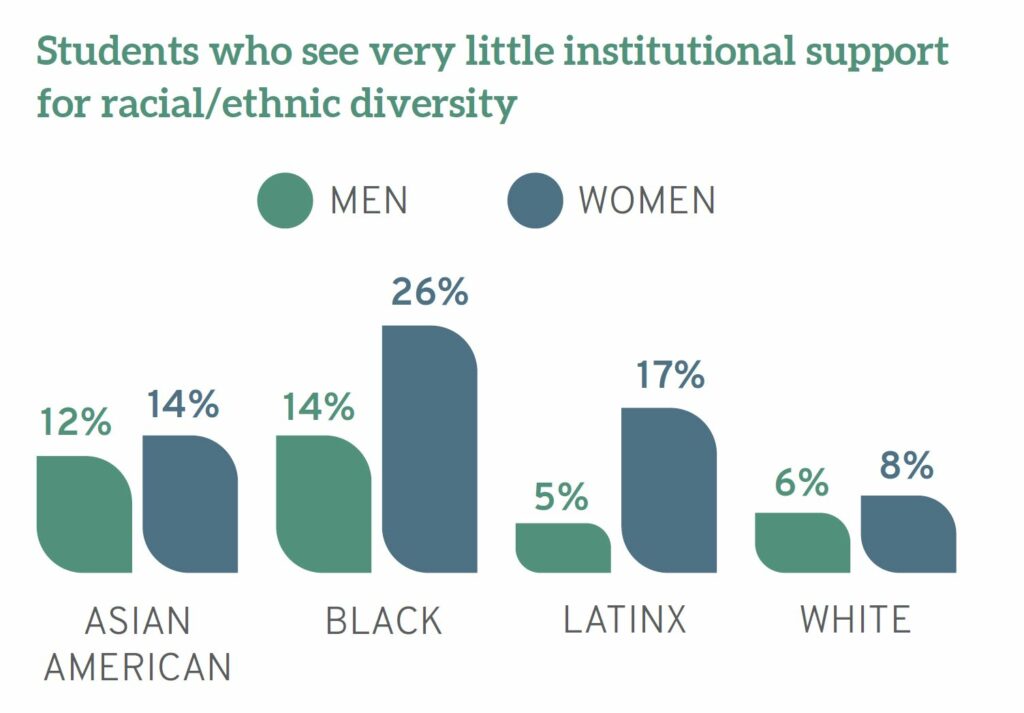 Guest Post: A Message to White Law Faculty: Mentor Racial Minority Students
Guest Post: A Message to White Law Faculty: Mentor Racial Minority Students
Gregory S. Parks
Associate Dean of Strategic Initiatives and Professor of Law
Wake Forest University School of Law
Pursuant to Law School Survey of Student Engagement’s (“LSSSE”) 2020 Diversity and Exclusion Annual Survey, there are troubling findings with regard to racial minority students’ sense of belonging and institutional support. Thirty-one percent of White students, but only 21% of Black and Native American students, feel a part of their law school community. Moreover, “women of color are more likely than men from same ethnic/racial backgrounds to feel that they are not part of the campus community.” Specifically, 34% of Black women law students felt this way. When asked if they did not feel comfortable being themselves on campus, 12% of White students agreed compared to 21% of Black, Latinx, and Native American students. Students of color are more likely to believe that their school does “very little” to ensure they are not stigmatized based on identity characteristics. Twenty-five percent of Black, 18% of Latinx, and 14% of Native American students—compared to 9% of White students—agree with the statement.

When it comes to perceptions of institutional support, 32% of White students believe that their school does “very much” to support diversity compared to 18% of Black students. Correspondingly, 26% of Black women, 14% of Black men, 8% of White women, and 6% of White men believe that their school is doing “very little” to create an environment to support diversity. In addition, 28% of White students feel like their school does “very much” to support community among students while 18% of Black students and 14% of Latinx think their school does “very little.” Not surprisingly, only 31% of Black men, 18% of Black women, 32% of Latinx men, 23% of Latinx women, 31% of White men, 26% of White women, 25% of Asian American men, 23% of Asian American women, 27% multi-racial men, and 23% multi-racial women strongly agree that they feel valued by their institution.

Faculty of color often shoulder a disproportionate amount of emotional labor in supporting students of color.[1] As such, White law faculty can and should play a meaningful role in making the law school experience one where racial minority law students feel a greater sense of belonging and institutional support. That is through mentoring. Mentoring has two distinct functions—professional and psychological. Professional mentoring aids the mentee in advancing in the workplace. Psychological mentoring seeks to bolster the mentee’s competence, effectiveness, and identity. Mentoring relationships are rooted in clear expectations, mutual respect, personal connection, reciprocity, and shared values. Within the context of cross-racial mentoring relationships, mentors must be proactive in building a foundation of mutual respect and trust. In doing so, the mentor must develop cultural awareness and sensitivity to cross-cultural issues.
As such, mentors must:
- Recognize their own privilege.
- Have a growth-mindset in the relationship.
- Empathize with their mentee where possible.
- Listen to understand when they cannot.
- Guide the mentee to their own fullest potential.
- Diversify their own viewpoints and knowledge to become more informed on issues that may not affect them.
It takes work to be a good mentor. But it pays dividends for the mentee, mentor, institution, and legal profession. Law faculty have a lot on their plate. And while it is unreasonable to think that law faculty, in the aggregate, can mentor every law student at their school, the truth is that we can likely do much better than we are doing. And given that racial minority law faculty often carry much of the emotional labor associated with supporting the most marginalized law students, White colleges can and should play a much more significant role in this effort.
___
[1] See Meera E. Deo, Unequal Profession: Race and Gender in Legal Academia (2019)(note chapters 3 and 4).
